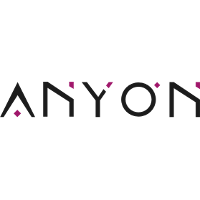

Anyon Systems, a Canadian quantum computing company based in Montreal, Quebec, has positioned itself at the forefront of superconducting quantum processor development. Founded in 2014 by Dr. Alireza Najafi-Yazdi, the company specializes in the intricate field of superconducting qubit technology, pushing the boundaries of what's possible in quantum computation.
At the core of Anyon Systems' technology are superconducting qubits. These quantum bits are based on the Josephson effect, a quantum mechanical phenomenon occurring in superconducting circuits. A typical superconducting qubit consists of a Josephson junction – two superconductors separated by a thin insulating barrier – integrated into a resonant circuit. The energy levels of this system are anharmonic, meaning the two lowest energy states can be isolated and used as a qubit.
Anyon Systems employs several types of superconducting qubits, including transmon qubits, which are less sensitive to charge noise, and flux qubits, which offer certain advantages in coherence times. The specific design of these qubits involves careful consideration of factors such as energy relaxation time (T1), dephasing time (T2), and anharmonicity. These parameters are crucial for determining the overall performance of the quantum processor.
The fabrication of superconducting qubits at Anyon Systems involves sophisticated nanofabrication techniques. The process typically begins with depositing thin films of superconducting materials, often aluminum or niobium, on a silicon or sapphire substrate. Electron-beam lithography is then used to define the precise geometry of the qubit circuits, including the Josephson junctions. The fabrication process must be extremely precise, as even nanoscale variations can significantly affect qubit performance.
Anyon Systems' quantum processors operate at ultra-low temperatures, typically below 20 millikelvin. This is achieved using dilution refrigerators that employ a mixture of helium-3 and helium-4 isotopes to reach these cryogenic temperatures. The extreme cold is necessary to minimize thermal excitations that could disrupt the delicate quantum states of the qubits.
The control and readout of superconducting qubits involve sophisticated microwave engineering. Qubit states are manipulated using microwave pulses typically in the 4-8 GHz range. These pulses are carefully shaped and timed to perform quantum gates. Single-qubit gates are achieved through resonant drives at the qubit frequency, while two-qubit gates often utilize interactions mediated through coupling resonators or direct capacitive coupling between qubits.
Anyon Systems has developed advanced control electronics to generate and shape these microwave pulses with high precision. This includes arbitrary waveform generators capable of producing complex pulse sequences, and ultra-low-noise microwave sources to minimize errors in qubit operations. The company also employs quantum-limited amplifiers, such as Josephson Parametric Amplifiers (JPAs), for high-fidelity qubit readout.
A critical challenge in superconducting quantum computing is coherence time – how long qubits can maintain their quantum state. Anyon Systems has made significant strides in this area, employing techniques such as materials engineering to reduce sources of noise and decoherence. This includes careful design of the electromagnetic environment around the qubits and the use of purcell filters to protect qubits from spontaneous emission.
The company's focus on scalability involves addressing challenges such as crosstalk between qubits and maintaining high gate fidelities as the system size increases. Anyon Systems is exploring advanced qubit coupling schemes and 3D integration techniques to allow for larger numbers of qubits while maintaining or improving qubit quality.
In the realm of quantum error correction, Anyon Systems is investigating surface codes and other topological quantum codes. These schemes involve encoding logical qubits across multiple physical qubits, providing protection against errors. Implementing these codes requires the ability to perform high-fidelity multi-qubit operations and fast, accurate qubit readout – areas where superconducting qubit technology shows promise.
Anyon Systems' quantum software stack includes tools for quantum circuit compilation and optimization. This involves translating high-level quantum algorithms into sequences of hardware-level instructions, taking into account the specific topology and constraints of their superconducting qubit processors. The company is also working on quantum optimal control techniques, such as GRAPE (GRadient Ascent Pulse Engineering), to design optimal control pulses for quantum operations.
In the area of quantum algorithms, Anyon Systems is exploring applications that align well with the strengths of superconducting qubit systems. This includes variational quantum algorithms like the Quantum Approximate Optimization Algorithm (QAOA) and the Variational Quantum Eigensolver (VQE), which are well-suited for near-term quantum processors. These algorithms involve a hybrid quantum-classical approach, where a quantum circuit prepares a state that is then measured, with the results fed into a classical optimization loop.
As Anyon Systems continues to advance its superconducting qubit technology, they are pushing the boundaries of what's possible in quantum computation. Their work contributes to the broader goal of achieving quantum advantage – the point at which quantum computers can solve problems beyond the reach of classical supercomputers. While significant challenges remain, particularly in scaling up to larger numbers of qubits while maintaining high coherence and gate fidelities, the progress made by companies like Anyon Systems brings us closer to the realization of practical, large-scale quantum computers.ite your text here...
